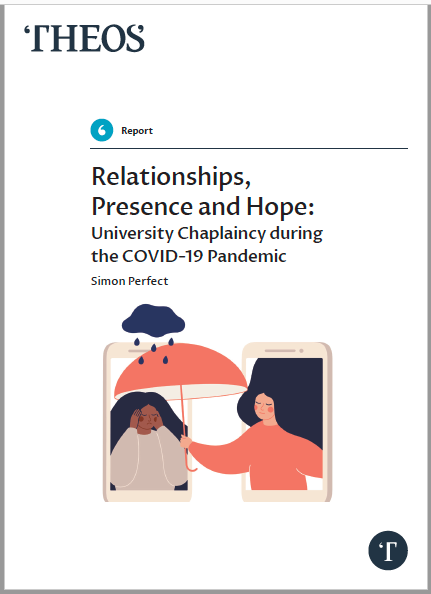
University challenges
University students have had a hugely disrupted year. Joni Roberts and Josh Edah give an insight into their experiences in the pandemic.
“I’ve seen lots of loneliness”
Joni Roberts is in her second year of a French and Philosophy degree at King’s College in London. Her university career started off with the normal freedoms – lots of freshers’ events, packed lecture halls, meeting for coffee, clubs, playing sports, and in-person church.
As the virus spread, her course moved online, and Joni returned home to Stratford-upon-Avon (where she attends theBarn in Bidford) a couple of days before the announcement of the first national lockdown. She remained there until September, when she returned to London for her second year and moved into a house with four friends. There was some in-person teaching in the early autumn, but that was soon curtailed with rising numbers of infections.
Life has subsequently become ‘very stripped back’.
“Though a lot of effort has been put into online, it’s quite isolating,” she says. “You’re stuck in a house. Four classes in a day, then the work on top of that, means 10 hours online at your desk. There’s no change in scenery, unlike before. It’s much harder to engage in classes online. People are exhausted, they don’t necessarily have the same drive as last year.
“You can go out for walks and get groceries, but you can’t socialise with anyone outside your bubble. I’ve not been able to see friends from courses. There’s no social life, which is a big part of the university experience. There’s no sport either.
“So it’s been really difficult. Life is completely different, and I’ve seen lots of loneliness.”
A couple of things have been key in helping her navigate this period. Her household has learned to support each other: making an effort to have dinner together every night; watching movies in people’s rooms and playing card games. “If we are all feeling isolated, we’ve done something together. It’s changed the mood and given us a chance to switch off. It’s been a learning curve, learning to live together. But we’ve formed a community and we are really close, in a way we probably wouldn’t have been had we had the usual distractions.”
Joni has also been part of an online community with her church, King’s Cross Church. “I joined a hub. We’ve been meeting once a week over Zoom. We’ll do a short Bible study, talk about highs and lows, pray for each other and play games. There are 11 or 12 of us. I’ve only met a couple of people in person. It’s seemed intimate and genuine, and it’s been such a lifeline.”
She adds:
“There have been lots of moments of growth – when circumstances you are in are painful, often positive things will grow.
“It’s showed me the power of meaningful human contact, and deepened the relationships I have."
‘A survey of 4,193 students conducted for the National Union of Students found that 52 % said their mental health was worse than it was before the pandemic’
“Difficult to meet new people – but learning self discipline and patience”
Josh Edah is in his first year, studying Maths and Computer Science at the University of Essex. There have been many reasons why it’s been a challenging time. For instance, his entire course has been online, and will be for the remainder of the academic year. Josh adds that personal support is naturally more limited too – it’s difficult to ask a lecturer all the questions you’d like to when you’re in a Zoom meeting with dozens of other students.
“Obviously you understand why it has to be online, but it doesn’t feel like value for money at £9,000 a year,” he says. “Hopefully when lockdown is lifted there can be more one-on-one support.”
Another challenge is the lack of human contact.
“I’ve not really had the experience of meeting new people. I’ve met some, which is great - I have flatmates, and in my block I have friends on all the three floors. I’ve met some people in the other accommodation. But I feel like I could have met more without the pandemic. It has been a struggle to find new friends, and that’s been one of the biggest things.
“I’ve also not had a chance to get a feel for the whole place. So if the pandemic wasn’t a thing, the experience would be better.”
All this has taken its toll, Josh admits. Keeping in touch with friends via social media and video technology has helped, as has listening to a lot of worship music. Josh, whose church back home in London is Mitcham Baptist, also joined the Christian Union and attends its Thursday services each week. “It’s been good to be in a community like this,” he says.
Did he think about deferring this year?
“No, I thought there was no point in missing a year. My goal is three years at Essex, and then hopefully a Masters at Oxford or Cambridge. I then want to take that knowledge and use it for the betterment of society. With Computer Sciences you can go into almost anything. So I wanted to get started, and it’s been a case of g

etting on with it.”
“I’ve learnt a lot of self discipline,” he continues. “The transition from secondary school to university is a big one. You have to learn to manage your time effectively.
“You need a lot of patience, and I know this is affecting everyone in different ways. Once restrictions lift we’ll feel a lot better.”
Further reading
As a result of research conducted by Theos,
Relationships, Presence and Hope explores the unique contributions of chaplains during this time, the challenges they have faced, and what lessons can be learned by chaplains and employers.
For more information, visit:
bit.ly/theoschaplaincy
This article was originally published in the
Summer 2021 edition of Baptists Together magazine.